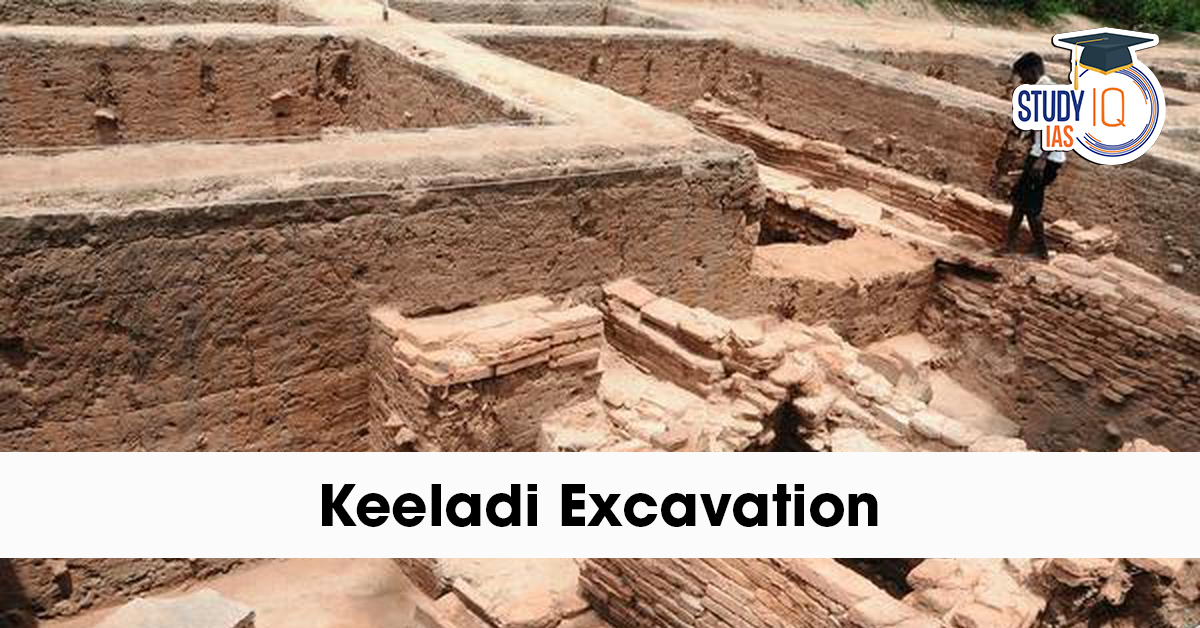Context: The Culture Ministry has stated that the Keeladi excavation report is not yet technically well-supported and requires further scientific studies for validation.
Keeladi Excavation
- Location: Keeladi is a village in Sivaganga district, Tamil Nadu, located along the Vaigai River.
- Excavation History: Excavations began in 2015, initially carried out by the Archaeological Survey of India (ASI), and later taken over by the Tamil Nadu State Department of Archaeology after an administrative dispute.
- Artefacts Unearthed: Over 18,000 artefacts have been discovered, including:
- Pottery and inscribed potsherds
- Gold ornaments and copper items
- Semi-precious stones (like agate and carnelian)
- Shell and ivory bangles
- Glass beads, spindle whorls, terracotta seals, and weaving tools
- Pottery and Inscriptions: More than 120 potsherds bear Tamil Brahmi inscriptions, indicating the early presence of literacy and the use of script in the region.
- Urban Characteristics: Evidence suggests Keeladi was a well-organised urban settlement with industrial activities like:
- Pottery making
- Weaving and dyeing
- Bead-making
- Trade and Lifestyle:
- The presence of luxury items like beads suggests trade networks.
- The discovery of dice and hopscotch pieces reflects recreational activities.
- Chronological Significance: The site pushes back the Sangam Age to around 800 BCE, revealing an advanced and early Tamil civilisation.
- Cultural Links: Certain symbols found at Keeladi resemble those of the Indus Valley Civilisation, though a chronological gap of about 1,000 years exists.


 Birsa Munda Birth Anniversary 2025: Life...
Birsa Munda Birth Anniversary 2025: Life...
 Military Innovations of Afghans and Turk...
Military Innovations of Afghans and Turk...
 Self-Respect Movement, History, Objectiv...
Self-Respect Movement, History, Objectiv...

























